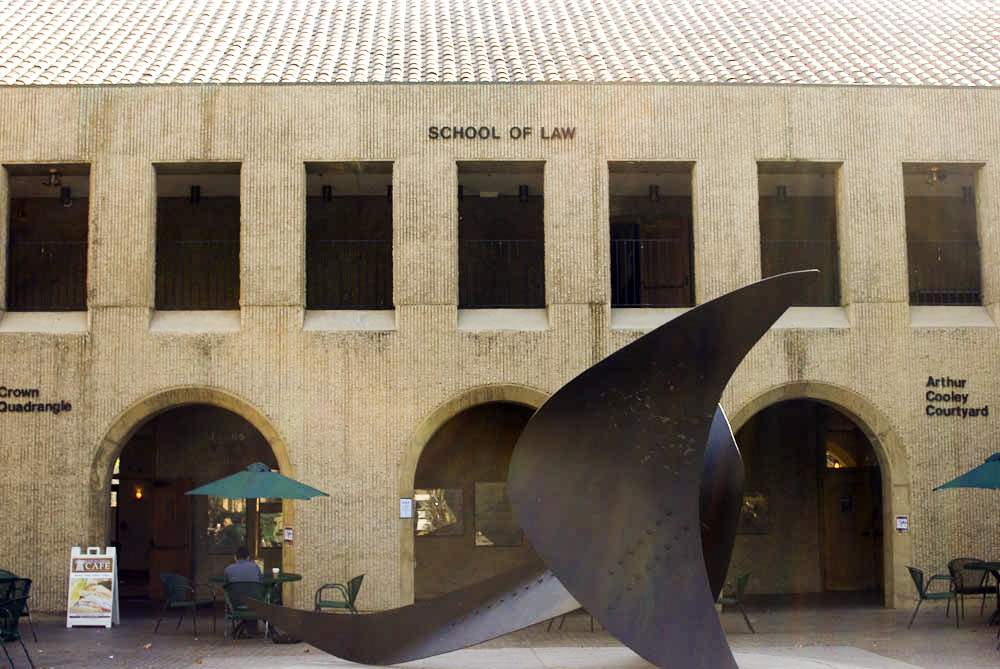Students in a new Stanford Law School (SLS) practicum being offered this quarter, LAW 806L, will study alcohol use on college campuses with the end goal of proposing new University policies to Vice Provost of Student Affairs Susie Brubaker-Cole.
SLS professor Paul Brest and psychiatry and behavioral sciences professor Keith Humphreys will co-teach the practicum.
LAW 806L arrives on the heels of recent changes in University alcohol protocols, which generated controversy among resident staffers earlier this month. Also this month, the North American Interfraternity Conference (NIC) declared a ban on hard alcohol at its chapters — including 10 of the 11 chapters on Stanford’s Inter-Fraternity Council — effective Sep. 1, 2019.
However, Brest said the practicum has been in the works since last spring quarter, at which point he was teaching a Graduate School of Business course that addressed alcohol use.
“[The practicum] had nothing to do with any current issues but rather with the knowledge that Stanford, like many other universities, has problems with alcohol abuse,” Brest said.
In March, after Brest and Humphreys first decided to organize a practicum on alcohol use, they brought the idea to Brubaker-Cole. By April, Brubaker-Cole and Office of Alcohol Policy and Education Director Ralph Castro had agreed to serve as the clients of LAW 806L.
“Brest and Humphreys are leading scholars in their fields, and we viewed this as an excellent opportunity to work with these experts and a group of Stanford students to deepen our knowledge base about undergraduate alcohol use,” Brubaker-Cole wrote in an email to The Daily. “This course seemed like an excellent opportunity [to] learn more about specific Stanford trends and ways to promote healthier behaviors here at Stanford.”
Brest said he hopes the practicum — one of more than 100 to have been hosted by the Stanford Law and Policy Lab — results in concrete policy proposals by the end of fall quarter. He added that, depending on the depth of the research, he is open to the idea of students proposing areas for further study and continuing the course in future quarters.
He stressed that LAW 806L is not a law course in practice but rather a practicum designed for interdisciplinary study, with topics determined based on the participants’ definition of the problems.
“One of the things we are trying to teach the students, because this is an educational enterprise, is good problem solving and strategic skills,” Brest said. “And good problem solving always begins by trying to understand what the problem is, rather than predefining what it is.”
“Obviously we have some idea [of what the problem is],” he added later. “It’s students drinking too much.”
Although Brubaker-Cole and Castro are the clients of the practicum, students will also be sent into the field to interview other stakeholders. Brest emphasized the importance of reaching out to resident assistants and resident fellows in particular.
While it remains to be seen how LAW 806L affects University alcohol policies, Brubaker-Cole wrote that she hopes to continue including students and other members of the Stanford community in shaping those policies.
“Our campus needs to work from a multifaceted approach to reduce high-risk behaviors around alcohol use,” Brubaker-Cole wrote. “I’m hopeful that the work of the students in this class will produce good insights that will contribute to our existing campus efforts in creating a healthier student culture around alcohol.”
The current plan is for administrators to meet with students on Oct. 19 and receive the policy recommendations on Dec. 7.
Contact Holden Foreman at hs4man21 ‘at’ stanford.edu.
